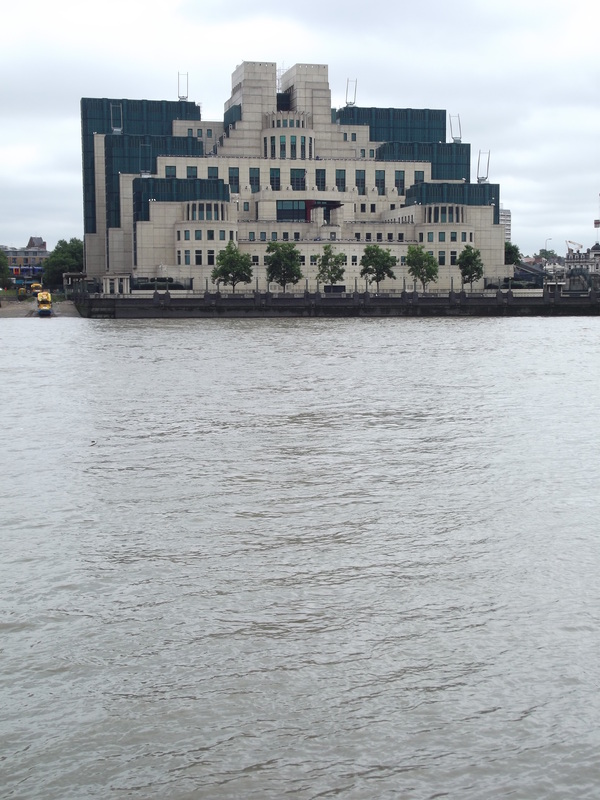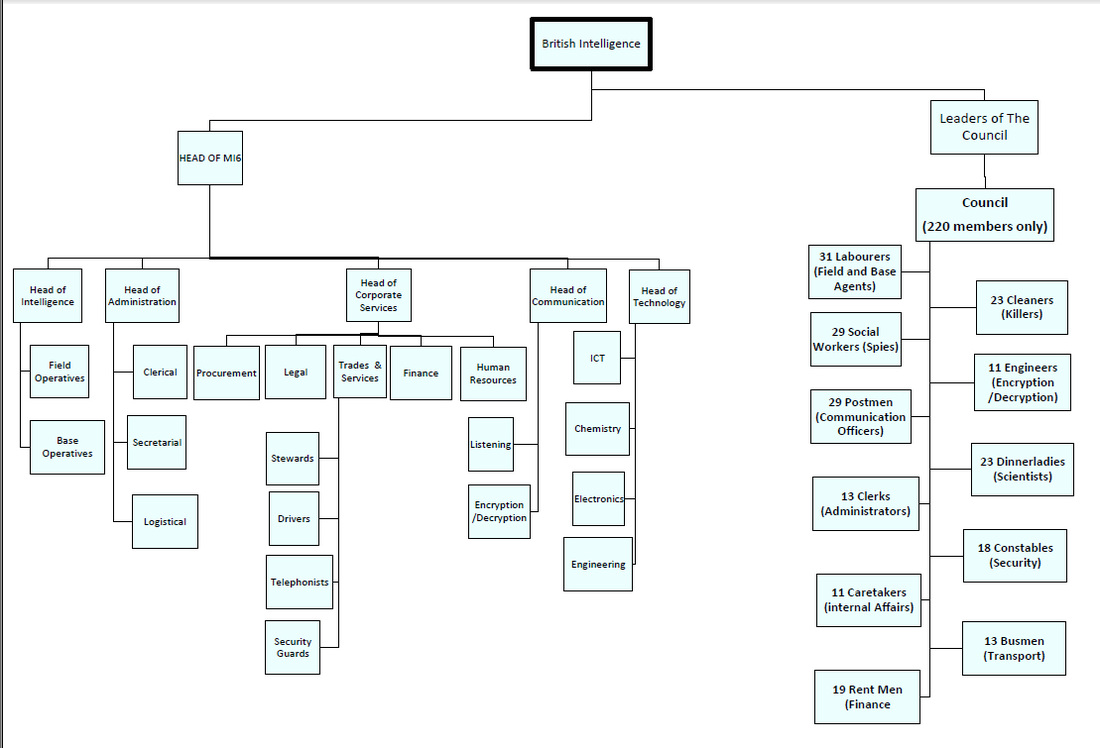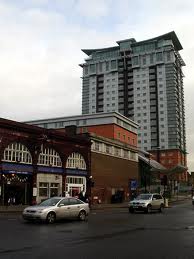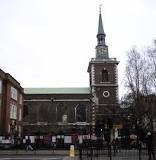The Council
On the left (in the diagram below) is the genuine staff structure of the Secret Intelligence Services or S.I.S. (commonly called MI6).
On the right is the structure of The Council. As can be seen, the Council is rather less cumbersome. Uniquely, in today's world, the Council makes an effort to employ the very best people and then trusts them to do their jobs. Although is some departments - Clerical, for instance, there is a notional division of labour that leads some to be allowed to see themselves as "above" others. However, No department has organsational superiority over any other: indeed, the original intention of Sir James Carlisle, the founder and first Leader of the Council was that each department should know as little of what the others were doing as was practically possible. Like soap bubbles in a wash basin, there would be points of contact but only of a very liminal basis. As one former Council Worker puts it: "...it is in the nature of the Council that most people who work for it, know very little other than what goes on in their own area of expertise. And those of us who no longer work for it, know absolutely nothing. It is what they used to call a “Secret Service”: unlike M.I.6, which appears nowadays to have the profile of a supermarket chain." The Rothko Room |
|
When Arthur joined forty years ago, promotion was always within departments but recently, leakage - albeit of a rather minor kind - has been allowed to occur. Ricketts' unprecedented move from Clerical to Engineering gets Arthur's whiskers twitching.
Only by dint of long service has Arthur gained some access to some other departments: "The Council used a wide variety of access arrangements and Arthur was privy to several of them. This allowed him entry to rather more of the Council than most but he remained several keypads, card-swipes, fingerprint recognisers and possibly even a retina-scan away from those who made the decisions." The Rothko Room MI6 and The Council have always had an uneasy relationship with the former always believing that it was British Intelligence for many years. As the Second World War drew to a close and Establishemnt figures jostled for position in the New Order, it happened that... but let Crawthorne Beasley explain: he does it so well... "Churchill’s failure to win the 1945 election was seen as a bitter blow by all those who had expected a brave new world of feudalism following victory in the War. What they now faced was the spectre of Communism under Atlee’s Labour government. It isn’t widely known that there was serious talk of civil war and Sir James always believed that had it not been for the fact that the country – meaning of course, the Establishment – was on it’s uppers, they would have gone ahead and fought Socialism with every bit as much vigour as they had Nazism" The Rothko Room The situation called for desperate measures: |
|
The result, eventually, was that Sir James established his own peculiar brand of Secret Intelligence Service responsible only to The Country rather than to a government. The first Council meeting was a strange affair:
This didn't go down well with government and in particular the man who believed he had a God given right to lead the nation, following his undoubted triumphs in World War II - Winston Churchill. In a section excised from The Rothko Room, Churchill comes to see Sir James:
|




